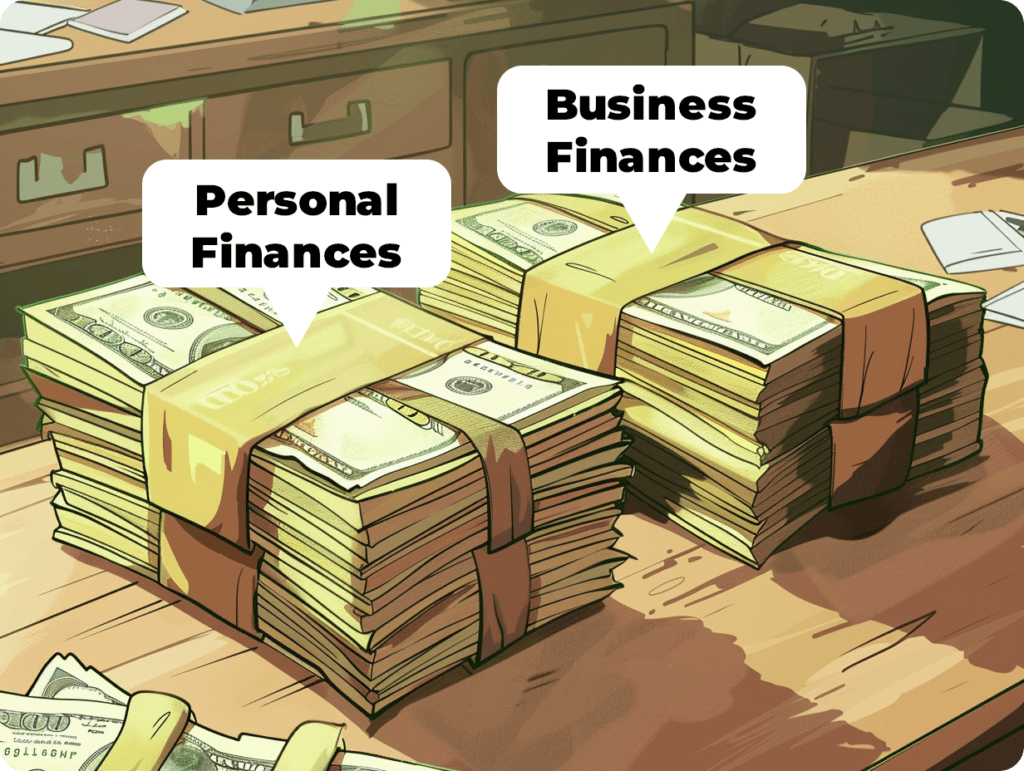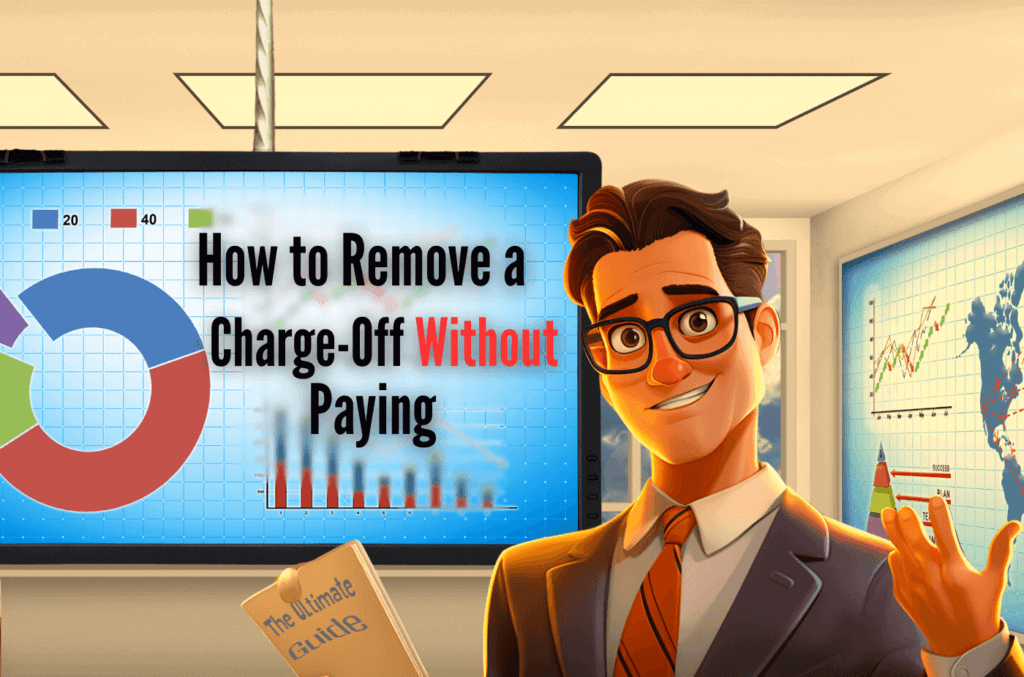- Blogs
- /
- Closing a Credit Card: 3 Easy Ways to Close Your Credit Card
Closing a Credit Card: 3 Easy Ways to Close Your Credit Card

Summary
Ever wondered about the impact of closing a credit card? Or have you instead wondered why people make a big deal about it? Shouldn’t it be as simple as snipping the plastic and moving on?
Well, unfortunately, it’s not that simple. Closing a credit card can come with unexpected consequences. There is a whole lot more to it than meets the eye. It has far-reaching effects on your financial health. Closing one can harm your credit score and change your debt-to-credit ratio.
Navigating the process of closing a credit card requires careful consideration and understanding. Today, we will explore the nuances of closing a credit card and its implications. Also, we’ll give insights into managing this decision effectively.
Before you take any decisive steps, you should understand how to close a credit card. Allow us to equip you with the knowledge needed to make informed choices.
Key Takeaways
- Closing a credit card could decrease your credit score. This is because it reduces your available credit, affecting your credit utilization ratio.
- Before closing an account, consider your number of open accounts. Also, consider their balances and the account age. These factors affect your credit score.
- Account age significantly influences your credit score. Closing older accounts may lower your average account age.
- Check the rewards and points associated with the card before closing it. Make sure you can redeem them properly.
- Consider negotiating better terms with the issuer. Otherwise, consider downgrading the card instead of closing it.
- Time the closure strategically to avoid disruptions in pending transactions. Also, time it to avoid disruptions in upcoming financial decisions.
Add Your Heading Text Here

Closing a credit card can impact your credit score. When you close a credit card, your credit score may significantly decrease. This happens because closing the card reduces your available credit. This affects your credit utilization ratio.
The impact on your credit score from closing a credit card depends on various factors. These include the number of accounts you have open and their balances.
The decision to close a credit card should only be made after carefully considering its potential effect on your credit score. Knowing how this action might influence your overall financial standing is essential.
Pre-Closure Considerations
1. Assessing Account Age
When considering closing a credit card, it’s crucial to assess the age of the account. The age of an account impacts your credit score. If you close an account with a long history, it can reduce your average account age.
Older accounts positively determine your overall account age, influencing your credit score. So, before making a decision, carefully check the age of the account. Consider its potential impact on your credit standing.
Maintaining accounts with longer histories is essential for improving your credit profile. For instance, if you have one credit card that has been open for ten years. You also have another that has only been open for two years. Closing the older card could drastically decrease your average account age.
Maintaining accounts with longer histories can help build and sustain good credit. It’s essential to note this.
2. Evaluating Rewards Balance
When considering closing a rewards-based credit card, check for any unused rewards or points associated with the card. Before you close the account, redeem any rewards or points linked to this credit card.
These benefits are usually forfeited upon closure. Understanding the conditions for redeeming rewards to maximize their value is essential.
To be safe, take advantage of any available incentives before closing the credit card. This ensures that these benefits are not lost due to oversight during the closure process.
3. Checking Remaining Balances
Before closing a credit card, thoroughly check all remaining balances. Before moving forward with closure, pay off all outstanding balances.
Check for any pending transactions or charges on this line of credit. Paying off all remaining balances helps avoid potential negative consequences. These include accruing extra interest charges or late fees after closing an account.
Keep meticulous track of monthly statements from financial institutions issuing these cards. This will help guarantee that no residual balances go unnoticed. This is important to do before finalizing plans for termination.
Steps to Cancel a Credit Card
1. Contacting the Issuer
When you want to close a credit card, it’s crucial to start by contacting the credit card issuer. This lets you learn the steps and requirements for closing your credit card account.
This will also help you understand what is needed from your end and how to proceed with the closure process.
Inquire about any potential fees or penalties associated with closing the account. It’s essential to follow the correct procedure outlined by the issuer. This ensures a smooth closure process.
Understanding these details can prevent surprises during closure. It can also help you avoid unnecessary complications. For example, some issuers may need written confirmation of your intent to close the account. Others might allow for closure over the phone or through an online portal.
2. Clearing Outstanding Dues
Before closing your credit card, settle all outstanding dues. It also includes interest accrued on those balances or any other fees associated with the account. Doing so prevents negative impacts on your credit score. It also ensures no lingering financial obligations are tied to that credit card.
Clearing outstanding dues is a responsible financial practice. It is an essential step in maintaining good standing with creditors. It also protects your financial health.
You could face extra charges or harm your credit history if you don’t pay what you owe before closing a credit card.
It’s like ensuring all toys are put away neatly before leaving a playdate. It prevents messes and keeps everything in order!
3. Confirming Account Closure
After you start the closure process with your credit card issuer, confirm that your account has been closed. Take proactive steps. Verify with the issuer that they have processed your request and have officially closed the account.
Keep records of this confirmation. This is essential. Note any confirmation numbers provided by customer service reps. Save documentation related to the closure process.
Confirming account closure ensures that you are no longer responsible for the card. It also prevents unauthorized use of the account in the future. Double-checking closure status provides peace of mind, knowing everything has been completed correctly.
Handling Automatic Payments
1. Identifying Recurring Charges
Before you close a credit card, identify any recurring charges linked to the card. Take the time to review your recent statements.
Note down all the automatic payments linked to the card. This could include subscriptions, utility bills, or any other services. Bills you regularly pay for using this credit card. Once you have a list of recurring charges, you can update their payment methods.
Updating payment methods for subscriptions or services tied to the closing credit card is essential. This will avoid disruptions. Log into your account. Do so if you have a monthly streaming subscription linked to this card. Switch the payment details to another active credit card. You can also use an alternative payment method, such as PayPal.
Ensure you address these recurring charges before closing your credit card. This can minimize potential complications. It can also help maintain smooth relationships with service providers.
2. Transferring Payments
If you hold many credit cards, consider transferring any automatic payments from the closing one onto another active card.
Update your payment information for bills or subscriptions tied only to this card. This will help ensure that no payments are overlooked during this transition period.
Promptly transferring automatic payments prevents missed payments and avoids disruptions in financial obligations. It’s essential to maintain good standing with service providers. You also need peace of mind knowing all necessary expenses are being taken care of on time.
Managing Rewards and Benefits

Redeeming Points
Before closing a credit card that offers rewards, you should redeem any accumulated points or benefits. By doing so, you can ensure that you have fully used the perks associated with the card.
Take the time to understand the different redemption options available. These include cashback, travel rewards, and merchandise. Choose the option that aligns with your needs and provides the most value for your points.
When redeeming points, keep an eye out for promotional offers or discounts. They can help maximize the worth of the points.
It’s crucial to redeem points before closing the card. You may lose access to those rewards once the account is closed. So, using them while the card is still active is essential.
Be proactive about redeeming your rewards before closing a credit card. This can help you avoid forfeiting valuable benefits and ensure they are used well.
For example:
- Consider using your accumulated points if you have a travel rewards credit card. You can use them to book flights or hotel stays.
- Or, if cashback is an option for redemption and you have a significant amount available, consider using it to pay off part of your outstanding balance on the credit card. Then, close the credit card.
Understanding Expiry Terms
Before closing a rewards-based credit card, redeem points. Please familiarize yourself with its expiry terms for benefits and rewards.
Knowing any deadlines set for redeeming these rewards before they expire is crucial. By understanding these terms, you can avoid losing valuable benefits due to oversight.
Furthermore, knowing when these rewards may expire allows you to plan accordingly. This is important when considering whether to close a particular credit card account. With this knowledge, you’ll be better equipped to make informed decisions about managing your reward-based cards effectively.
Safely Disposing of Your Card
1. Physical Destruction
After closing a credit card, it’s crucial to destroy it. This prevents potential physical misuse. Cut the card into several pieces. This destroys essential details, such as the account number and expiration date.
Dispose of the shattered pieces in separate trash bags. This can minimize the risk of someone piecing them back together.
Shredding or burning the card adds an extra layer of security. It makes it nearly impossible for anyone to retrieve your personal information. This process significantly reduces the chances of identity theft. It also reduces the chances of unauthorized use of your closed credit card.
Physically destroying your card protects you. It ensures no one else can attempt to use it for fraudulent activities. It’s like breaking an item beyond repair so nobody else can use it. Once it’s damaged beyond recognition, its purpose is completely lost.
2. Digital Footprint Removal
Besides physically destroying your card, removing any saved payment information associated with the closed credit card from online accounts and websites is essential.
Update your payment details on e-commerce platforms and any online services. You previously used this card. This will help prevent accidental charges or unauthorized access.
Deleting stored information about closed credit cards from digital wallets or payment apps helps reduce the chance of misuse. Clear your auto-fill data for this card. Doing so ensures that old details won’t resurface when filling out online forms.
Imagine clearing out all traces of using a drawing board after creating a beautiful piece of art. Wipe away every last smudge so there’s no hint left behind. Similarly, removing your digital footprint helps ensure that no remnants remain. Someone else might stumble upon them and exploit them.
When to Close a Credit Card
1. High Fees or Interest
If you face high fees or interest rates on your credit card, consider closing it. Assess the annual fees for the card. Compare them to any benefits you’re receiving. If the costs outweigh the advantages, closing the card could save you money in the long run.
Look closely at the interest rates linked to your credit card. Compare them with other options. Doing so lets you determine if alternative cards offer lower fees or better interest rates. This would be more beneficial for you.
Closing a credit card with high fees or steep interest can prevent unnecessary expenses. It’s essential to look out for these. They allow you to reduce costs and improve your financial standing.
Exploring alternatives is crucial when considering closing a credit card due to high fees or unfavorable interest rates. Consider different cards offering reduced charges and improved terms before making closure decisions.
2. Unused Accounts
Having multiple unused credit cards may impact your financial status even if they aren’t actively used for transactions. Take stock of your accounts and check whether some are rarely utilized. If this is true, think about shutting down those specific accounts.
Unused accounts can still influence your overall credit score and financial well-being. They can do this even if they remain dormant for a long time.
It’s important to consider whether keeping these unused accounts open provides substantial benefits. This is true from both an organizational and financial perspective.
Simplifying your finances by eliminating unused accounts could be helpful. It helps you manage your finances effectively. It also prevents potential negative impacts on your credit score.
3. Financial Strategy Changes
Sometimes, deciding to close a credit card is part of broader changes to one’s financial strategy. Circumstances evolve. Reassess what matters most financially. This will help determine if shutting down certain cards aligns with these new goals.
Before making significant changes like this one related to handling credit cards within their larger context as part of personal finance management plans, seek advice from professional advisors. Certified accountants can also help. They can provide valuable insights.
Unique financial strategies often require adjustments. Decisions involve reevaluating elements, like lines of credit. This may mean choosing to keep some open while letting go of others. You should align decisions about closing specific lines of credit with your financial strategy.
The Aftermath of Closure
1. Monitoring Credit Report
After closing a credit card, regularly monitoring your credit report is crucial. Doing so lets you keep track of any changes and ensure that all the information is accurate.
Checking for errors or discrepancies related to the closed account is essential. It helps you identify any potential issues caused by the closure. By staying vigilant about your credit history, you can safeguard against any negative impacts from the closure.
Monitoring your credit report also gives you peace of mind. You’ll know everything is in order, and no surprises await you. It’s like watching your financial storybook to ensure no unexpected plot twists!
Even after closing a credit card, staying aware of your credit report empowers you. It helps you take action if something seems wrong. It puts you in control. It allows you to address any discrepancies promptly. This prevents them from snowballing into bigger problems later on.
2. Trailing Refunds
After closing a credit card, you must watch for refunds from past transactions. Sometimes, merchants may issue refunds for returns or overpayments. They may do this even after closing the associated card.
You must pay attention to ensure you receive any refunds owed to you. You should act to ensure the refunds are correctly credited or issued. If you have trouble with refunds, contact the merchant or service provider. This allows you to follow up on these outstanding amounts effectively.
Being aware of trailing refunds helps you keep money that belongs to you. It could easily slip through the cracks without attention after closing.
It’s like making sure everything is in order before moving forward. Staying proactive about tracking these lingering funds ensures nothing is left behind unintentionally.
Alternatives to Closure

1. Negotiating Card Terms
If you’re considering closing a credit card, negotiate better terms with your issuer. You can request a lower interest rate, reduced fees, or an enhanced rewards program. This will make your current card more appealing.
Explaining your reasons for contemplating closure may prompt the issuer to provide alternatives that meet your needs. This negotiation process could result in improved conditions, making closure unnecessary.
Negotiating card terms can lead to more favorable conditions. It can also help you avoid the hassle of closing a credit card account. For example, if another offers you a new credit card with attractive benefits, contact your current issuer first. Tell them you’ve received an enticing offer elsewhere. Ask if they can match or improve it.
Ensure you explore this alternative before deciding on closure. Negotiating better terms is more straightforward. It could also benefit your relationship with your current credit card provider.
2. Downgrading Your Card
Instead of closing a credit card, consider downgrading it to a different type within the same issuer’s range of products. This approach lets you keep the account history linked to the original card. You can alter its features according to your preferences.
However, before proceeding with this option, research available downgrade choices and their associated benefits. Assess whether downgrading aligns with your financial goals and needs. Compare factors such as annual fees and rewards programs. Also, consider any additional perks each type of card offers.
For instance, if you have a travel rewards credit card you no longer use for travel-related benefits due to lifestyle changes or other reasons. In this case, downsizing it into a basic cash-back or low-fee rewards card might be suitable. This way, you can adjust without losing the track record length linked with the original account.
Downgrading can be especially advantageous. It lets you keep access or use from an existing line of credit. This makes more sense than closing the account entirely.
Smart Closure Strategies
1. Timing Your Closure
Choosing the right time to close a credit card minimizes potential disruptions and negative impacts. Consider factors such as pending transactions, upcoming bills, or loan applications. Planning ensures a smooth transition after closing the credit card. It mitigates any unforeseen complications that may arise.
When you close your credit card, it’s essential to consider any pending transactions or bills that are yet to be charged. If you close your card when there are still outstanding charges, it can lead to confusion and inconvenience for you. It can also affect the merchants involved in those transactions.
Furthermore, if you have any upcoming loan applications or significant financial decisions on the horizon, wait until these processes are complete. Then, start the closure. This can help prevent any adverse effects on your credit score. Changes in your available credit or average account age during critical financial assessments can cause these negative effects.
Strategically time your closure based on these considerations. This will help you avoid unnecessary hassles. It will also ensure a seamless transition without compromising your financial stability.
2. Maintaining Credit Health
Closing a credit card is just one part of overall credit health. Focusing on closing accounts is essential. But you must also manage and improve your credit profile.
Paying attention to factors like payment history is necessary. Ensuring all bills are paid promptly is essential for maintaining good credit health. This is true even after closing an account. It’s vital to monitor how much of your available credit you’re using. This demonstrates responsible borrowing behavior.
Regularly reviewing your credit report allows you to identify any errors or discrepancies. These could negatively impact your credit health. Promptly addressing these issues helps creditors and lenders see your financial standing accurately.
It is essential to build positive habits actively. These contribute to long-term financial well-being. Closing a credit card does not guarantee good credit health. In some cases, it could be beneficial to consider alternatives. For example, keeping the account open with minimal usage.
Finalizing the Closure Process
When closing a credit card, requesting written confirmation from the issuer is crucial. This confirmation serves as proof of closure. It can be invaluable if any disputes arise in the future.
Keep a copy of the confirmation letter or email. It will confirm that the account has been closed. This written evidence provides clarity and avoids potential misunderstandings. It adds an extra layer of security to the closure process.
Updating your records is essential after closing a credit card account. It’s crucial to inform relevant parties about this change. You should tell banks or service providers.
Ensure your closed credit card is not linked to any accounts or subscriptions. Do this by updating your information with these entities. Keeping your records up-to-date helps maintain accurate financial information. It also prevents future complications related to the closed credit card.
Inform all relevant parties about the closure of your credit card. This ensures that everyone involved in your financial transactions knows this change. Notify banks, service providers, and subscription services to update their records.
Updating personal records includes reviewing automatic payments linked to the now-closed credit card. Make the necessary changes where required. Ensuring no recurring charges are associated with this account post-closure is essential.
Keeping copies of all communications related to closing your credit card account for future reference. These documents serve as evidence. They can help if there are discrepancies about whether you’ve officially closed the account.
Summary
You’ve learned the ins and outs of closing a credit card. You now know how to navigate this process. You should also understand the implications of closure and be able to manage automatic payments and rewards.
Remember, the aftermath of closure and innovative strategies are crucial. As you consider the closure process, weigh your alternatives carefully. Choose the option that aligns with your financial goals.
Ready to take control of your credit card situation? Make informed decisions about closing or keeping your credit card. Choose what works best for you.
FAQs
How will closing a credit card affect my credit score?
Closing a credit card can impact your credit score. It reduces the available credit and may increase your credit utilization ratio. However, the impact may be minimal if you have many cards or maintain low balances.
What are some pre-closure considerations before canceling a credit card?
Before closing a credit card, consider paying off any outstanding balance. Also, redeem reward points. Ensure that any recurring payments tied to the card have updated payment information.
Can I transfer my remaining rewards and benefits to another card before closing?
You can often transfer unused rewards or benefits to another eligible account offered by the same issuer. Check with your provider for specific options for transferring rewards from one account to another.
Our Latest Blogs:
FREE Strategy Session to Fix Your Credit Blogs / Facebook Twitter Linkedin Instagram Share Summary Every savvy entrepreneur understands...

ThisIsJohnWilliams
FREE Strategy Session to Fix Your Credit Blogs / Facebook Twitter Linkedin Instagram Share Summary A credit freeze is...

ThisIsJohnWilliams

ThisIsJohnWilliams
FREE Strategy Session to Fix Your Credit Blogs / Facebook Twitter Linkedin Instagram Share Summary Get your financial freedom...

ThisIsJohnWilliams
FREE Strategy Session to Fix Your Credit Blogs / In today’s digitally interconnected world, we all face the danger...

ThisIsJohnWilliams
FREE Strategy Session to Fix Your Credit Blogs / Facebook Twitter Linkedin Instagram Share Summary For most people, rent...






